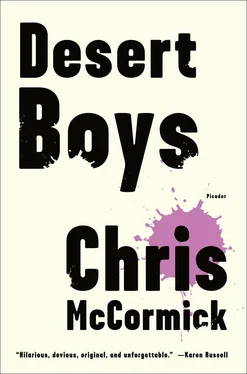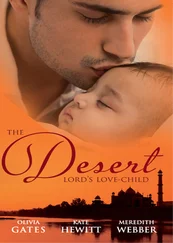THE CONSTITUENT
A white woman in her fifties, wearing a purple sweatsuit and an enormous camouflaged backpack, asked Joshua, in a voice chipped away at for decades by the fiberglass in her filters, if she could have his seat. She pointed to the disability sticker, and, although she seemed perfectly capable of standing and showed no signs of physical impairment whatever, Joshua stood and said, “Of course.” This forced me — though I knew I’d be giving up my seat to a piece of luggage — to follow suit. Once Joshua and I grabbed ahold of the rail above our heads, the woman, by way of thanking us, shimmied out of the straps of her backpack, molting from the thing like a cicada from its exoskeleton, shouldered it onto the seat next to hers, and coughed out the following: “If all fags was nice as the two of you.”
I felt a shame so immediate and physical that I had to grip with both hands the bag of leftovers from the café so as not to slap her. But there was something comforting, too, to be thought of as part of a duo for the first time since Lloyd asked me to leave. All this, combined with my lack of sleep, prompted me to do what I’d avoided most of my life. I spoke up.
“First of all,” I said, “only one of us is gay. And even if we both were, what would happen?”
“What would happen if you two was gay?” she wanted to know.
“No,” I said, reminding her impatiently: “You said, if all fags were as nice as us … and then you stopped. Well? Go on. Finish the sentence.”
The woman stared up at me and scrunched her face in that curious way my mother always did when she’d forgotten why she came into the room. Joshua put his hand on the small of my back, and it took me a moment to realize this wasn’t the touch of a lover, but the touch of a wrestler tagging in.
The train had reached the tunnel beneath the bay, and the sheer volume of the electricity and the steel and the aluminum put our conversation on pause.
By the time we emerged from the tunnel and reached the quiet, outdoor stop at West Oakland, bracing from the sun coming greenly through the tinted BART windows, I’d moved on from the incident with the woman and prepared a question for Joshua regarding the evening’s event promoting job creation in the clean energy market. I was surprised, then, to see Joshua kneel on the train’s green carpet, face the woman in the purple sweatsuit with hardly two feet between their noses, and ask, in a calm and beguilingly respectful tone, if the woman happened to be a resident of Oakland’s third district.
“Currently I live off Telegraph and Twenty-third,” she said. “I don’t know what the hell district that is.”
“That’s it,” Joshua said, letting his legs slide under him, now that the doors had closed and the train was about to move again. What his smile couldn’t do, I didn’t know. His smile seemed capable of the vital but inglorious work of removing simple obstacles from otherwise happy days — it could jump-start a car, probably, or unclog a toilet. With this smile he introduced himself as the woman’s representative.
The woman coughed a laugh. “You’re a child.”
“The seventh-youngest city council member ever,” I offered.
“What’s your name?” Joshua asked.
“Shelly.”
“Nice to meet you, Shelly. You have a job?”
“I’m between things,” said Shelly. Suddenly her tone changed, which I attributed solely to Joshua Stilt’s charisma. Her skepticism had been replaced by a revelatory joy, as if she’d trained for this conversation her entire life and now had to try desperately not to vocalize or repeat the phrase, “This is not a test.”
“I’m a certified bus driver,” she said, “but for the furloughs. And we went on strike and nothing never came from it. And in the meantime, all the banks get free money, and there was protesters living on the streets a year ago, making the news every day, but they went and shut them up, too. My son Elijah — he’s sixteen — he gets a citation, but the banks, they get away scot-free.…”
And the conversation went on in this way back and forth for a few minutes, with Joshua expressing his sympathies and his plans, and Shelly expressing her doubts. When her stop arrived, Joshua thanked her for the talk and promised to bring up her concerns at the next city council meeting. He invited her to that night’s green jobs event. She heaved her backpack over each shoulder, stood framed in the doorway, and said, “You seem like a good enough young man, but there’s a lot, a lot, a lot of angry people in this city, people you can’t just sit down on the train with and talk civilized to. Know that.”
Later, on our walk to his apartment, I could hear Joshua muttering to himself: “Shelly Retivat, bus furlough, Twenty-third and Telegraph.”
“You memorize all your constituents?” I asked.
He looked back at me. “Only the angry ones,” he said. “So, yeah. All of them.”
THE TRANSCRIPT, 2/3
DK:Tell me about the incident with the Confederate mascot.
JS:I’d rather talk about my plans for the City of Oakland. Can we—?
DK:Really quick, I want to get your take on what some people see as the reason you’re in politics in the first place.
JS:Well, that’s not entirely true. I was always the kid who participated. I ran cross-country in elementary school, did every geography and spelling bee in middle school, and did the whole pep rally, spirit thing in high school. It wasn’t until I got to Stanford that the urge to engage just sort of arrived in the form of politics. But, sure. We can talk about the mascot, briefly. Being the mascot was a mistake — I’m reminded every day by black voters who’ve seen those pictures of me. But I was a kid — and a lonely one, at that. I was fourteen, fifteen, and my main focus was just getting through my time in the AV. I was my mother’s son back then more than I am now, and I wanted to be as undisruptive as possible. Even though I knew what the Civil War was all about, obviously, I’d internalized the idea that the Confederate flag had become a postracial symbol of independence, nothing more. Remember, there weren’t many black kids in our high school, and the others didn’t seem to want anything to do with me because I was on the pep squad with all these white kids, and [ sounds of the espresso machine ]. So, I understand why Hollywood stars and progressive talking heads were furious on my behalf — a Confederate mascot in California in the twenty-first century simply shocked people who don’t know how un-California most of California is — and I appreciated their concern. But the truth is: I was the one who had to keep going to that high school once the mascot was changed. And most of the students and teachers and parents — many of whom had gone to Antelope Valley High themselves — hated me for messing up a tradition they’d come to love. The parents were the worst. They saw it as the triumph of political correctness, or else feared the mascot-change represented some larger change they weren’t ready for. I don’t know. A lot of racists can coexist with black folks just fine as long as you don’t ask them to change anything. The way they saw it, you’ve got how many hundreds and hundreds of students, and you have to change the mascot on account of hurting a few black kids’ feelings? I had a mother leave a message on my home answering machine, politely informing me that if I wanted to be more comfortable, Compton was only an hour away. I got threatening letters from self-proclaimed skinheads and Nazis. I looked around and couldn’t spot any of the people who’d had my back before the mascot changed — not a single movie star, director, talking head, or politician. They’d all gone back to their lives of making money, and I was left to defend this political stand I’d never had any intention of taking in the first place.
Читать дальше












